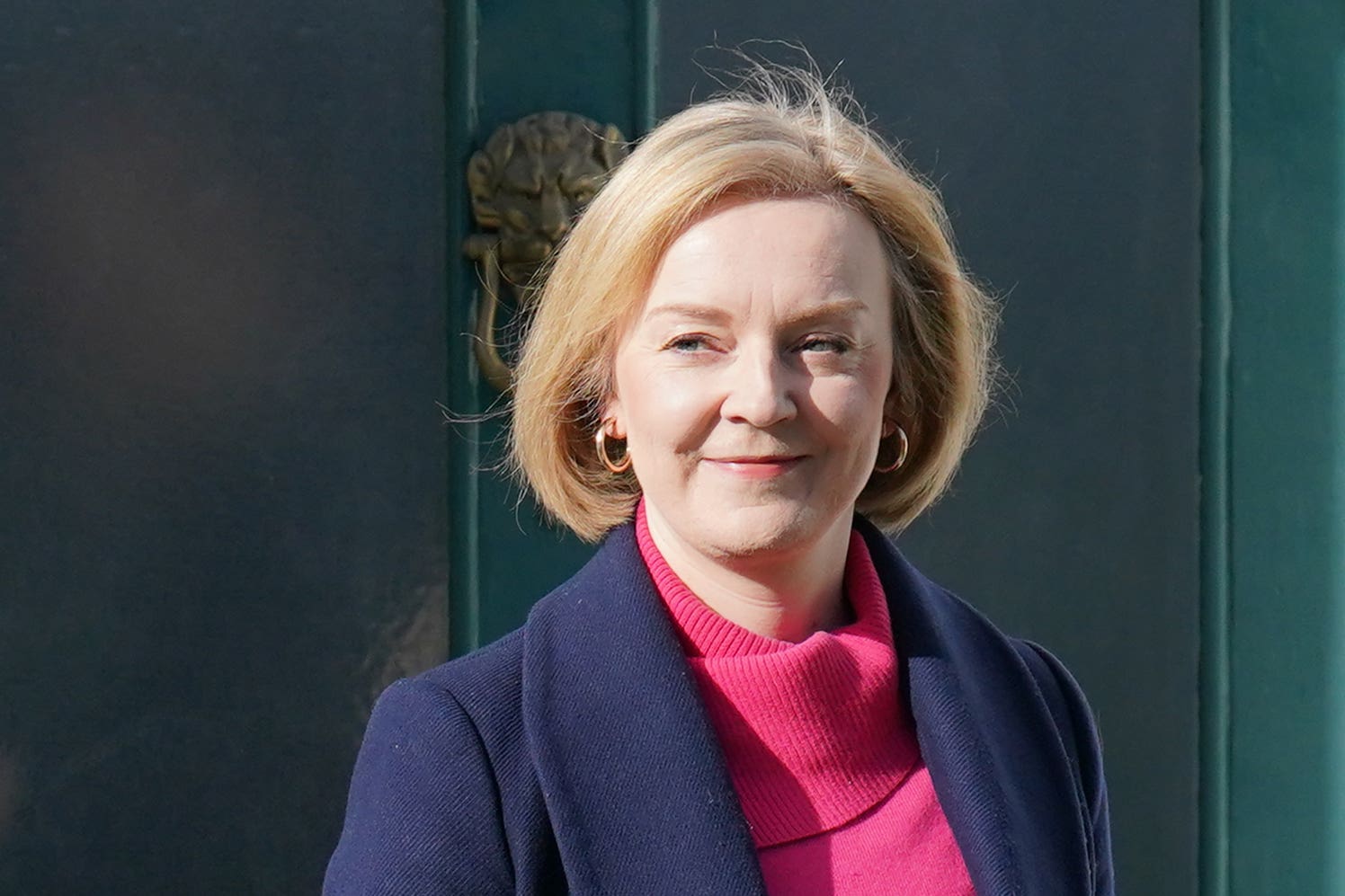Truss brands claims she dresses like Thatcher ‘lazy thinking’
The former prime minister also described the Daily Star’s livestream of a lettuce while she was in No 10 as ‘puerile’.

Former prime minister Liz Truss has accused the media of treating politics as a “soap opera” and focusing on “froth”, adding that suggestions that she was copying Margaret Thatcher’s dress sense represented “lazy thinking”.
She also described the Daily Star’s livestream of a lettuce, to see if it would last longer than her tenure in No 10, as not “particularly funny” and “puerile”.
Ms Truss’ 49-day long premiership made her the shortest serving prime minister in British political history.
Her tenure was marred by a mini-Budget launched last year, which forced her to sack her chancellor Kwasi Kwarteng and saw confidence in her premiership quickly collapse.
Ms Truss has mostly focused on international affairs since leaving No 10, and has been particularly vocal on hardening the UK’s policy towards China.
Asked at the News Xchange conference in Dublin whether she had sought to dress like Baroness Thatcher, she said female politicians are often compared with one another because “there aren’t that many of us”.
“I just think, frankly, it’s lazy thinking on people’s part. It’s not something I have ever consciously sought to do at all,” she said.
I came into politics because I wanted to change the country, I want to push particular ideas, and it is frustrating when you get diverted onto a discussion of what hat you’re wearing
Ms Truss said that although “robust debate” in the British media represents “a good thing overall”, she also expressed frustration with some elements.
“There’s too much focus on the people and seeing it as a sort of entertaining story to follow – a kind of soap opera, rather than discussions of the ideas, and I particularly find that true on economics.
“I think the level of understanding of economic ideas in the media, and the ability to explain them, is very poor indeed.”
She added that spending days following politicians around and “shouting things at them is not really journalism”.
Ms Truss also claimed that she would get “a lot of sympathy” from politicians at international summits about the attitude of the British media.
“I think that the British media are known throughout the world for being particularly vociferous and I don’t think they are particularly deferential to politicians,” she said.
“It’s frustrating because I came into politics because I wanted to change the country, I want to push particular ideas, and it is frustrating when you get diverted onto a discussion of what hat you’re wearing, or whether you like photographs, all this other stuff, rather than one of the crucial issues that are affecting Britain, Europe, Ireland and the US.
I do think sometimes politics is sort of treated as a branch of the entertainment industry ... it’s a bit playground when there are really serious issues going on
“I do think sometimes politics is sort of treated as a branch of the entertainment industry. Who’s up, who’s down, who says what about who – it’s a bit playground when there are really serious issues going on.”
Ms Truss is one of a number of high-profile speakers at the two-day News Xchange conference being held in Dublin. Also among the speakers are Taoiseach Leo Varadkar, the recently appointed president of Reuters Paul Bascobert, and CNN anchor John King.
Opening the conference, Noel Curran, director-general of the European Broadcasting Union and a former director-general of RTE, said those involved in news cannot but be worried at the trends which indicate the industry is losing younger audiences.
He said the “downright brilliance” of journalism has never been so evident as it was during the Covid pandemic and during Russia’s invasion of Ukraine, and criticised the “day-to-day bullying” of newsrooms by governments across Europe in what he said is a rising phenomenon.
He added that, despite fears about the threat to the industry from artificial intelligence (AI), he believes it should be embraced with “a big, warm – but regulated – hug”.
Subscribe to Independent Premium to bookmark this article
Want to bookmark your favourite articles and stories to read or reference later? Start your Independent Premium subscription today.
